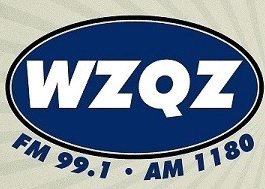The Georgia Department of Labor (GDOL) announced on Thursday that the state’s unemployment rate dropped to 3.4% in July 2025, a decrease of one-tenth of a percentage point from June. This marks the lowest unemployment rate for Georgia since April 2024 and stands eight-tenths of a point lower than the national average.
Labor Commissioner Bárbara Rivera Holmes highlighted the positive trend, stating, “More Georgians are stepping into the workforce and securing jobs — a trend that’s held strong for two consecutive months. Meanwhile, the number of unemployed has steadily declined for 11 straight months, resulting in an improved unemployment rate of 3.4% in July 2025, the lowest rate since April 2024. These gains reflect the power of putting workers first and building strong partnerships across Georgia.”
While the unemployment rate saw significant improvement, the total number of jobs in the state experienced a slight monthly decrease of 500, settling at 4,995,500. However, the year-over-year data painted a more robust picture, with jobs rising by 26,900 compared to July 2024.
A standout performer was the health care and social assistance sector, which reached an all-time high of 625,500 jobs in July. This sector also led monthly job gains, adding 2,800 positions. Other sectors experiencing notable growth over the past month included durable goods manufacturing (2,700), construction (2,100), professional, scientific and technical services (1,500), and state government (700).
Conversely, some sectors saw monthly declines. Accommodation and food services experienced the largest drop, losing 4,500 jobs. Other sectors with decreases included transportation, warehousing and utilities (1,400), finance and insurance (900), wholesale trade (900), federal government (700), information (700), and other services (700).
Looking at the past year, health care and social assistance remained the top job creator, adding a substantial 25,700 positions. Other sectors with significant annual growth were local government (6,700), private educational services (5,400), arts, entertainment and recreation (5,300), and administrative and support services (3,800).
Over the past year, transportation, warehousing and utilities saw the largest decline in jobs, down 10,600. Accommodation and food services (3,900), information (3,000), wholesale trade (2,500), and retail trade (2,500) also experienced significant annual job reductions.
Georgia’s labor force saw a slight increase of 732 to 5,377,004 in July, though it has declined by 39,195 over the past year. Employment rose by 1,702 individuals in July to 5,191,653, despite an annual decline of 27,716. The number of unemployed individuals consistently fell, dropping by 970 in July to 185,351, and decreasing by 11,479 over the past year.
Initial unemployment claims saw a monthly increase of 5,073 in July, reaching 24,730. However, initial claims were down by 2,535 compared to July of the previous year.








Comments